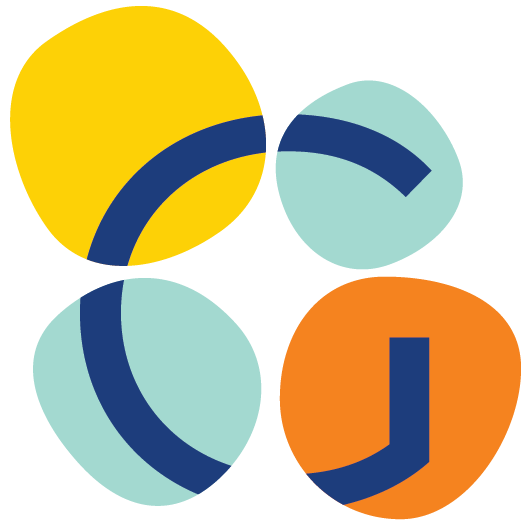Whether we’re in the middle of the action, hanging out on the sidelines, or watching from home with friends, sports foster community-building and a healthy sense of competition. The connection between sports and positive life outcomes has been well documented. In one such study, “Satisfaction with life in Special Olympics athletes: the role of autonomy support and basic need fulfillment,” researchers found that inclusion in autonomy-supportive sports (i.e., environments that support athletes in making decisions and setting their own goals) is related to perceived competence and satisfaction with life.
For many individuals with intellectual and developmental disabilities, Special Olympics offers a path to compete and build leadership, teamwork and communication skills. With its recently-launched program, The Guild aims to help student-athletes develop autonomy and confidence – all while having fun competing against local teams. To learn more about Special Olympics and The Guild’s vision for its program, we sat down with Geoff Garfinkle, CTRS, MBA, Director of Community and Vocational Education.
Can you give us a brief background about your history with Special Olympics and what the organization means to you?
I started volunteering and coaching with Special Olympics New Hampshire in 1989 and have been involved since that time, including being a Local Program Coordinator for over 20 years. I have attended or participated in most summer, fall, and winter games over the last 32 years, in addition to many regional and other sport-specific games during that time. In 2006, I was the head coach for the Motor Activities Training Program for New Hampshire at The National Games in Ames, Iowa. One of the most rewarding and impactful aspects of my career has been welcoming young student-athletes to Special Olympics for the first time, participating in programs and events with them as part of a team, and then seeing them still involved in the program later in life.
Research has demonstrated that participation in team sports promotes feelings of belonging and togetherness in individuals with IDD. In your mind, what are the key benefits of team sports for our athletes?
Special Olympics is a dynamic program, and a global movement that works to break down barriers and discrimination. Participation is not just about the sports themselves, but the programs create a real sense of belonging, inclusiveness, and celebration of all abilities and differences. A key benefit of team sports for our athletes is simply being part of the Special Olympics community. There are over 140 programs comprised of over 14,000 athletes, 15,000 volunteers, and 1300 coaches in Massachusetts alone. Sports provide a healthy way to work on various skills, including essential life skills. Participation at any level provides membership to a community of mutual support that often leads to friendships, social opportunities, family connections, and recognition of accomplishments.
The study highlights the importance of encouraging autonomy in athletes through involving them in decision-making processes. What are some other ways coaches, instructors and teachers can promote autonomy and a sense of independence in individuals with IDD?
Participation in Special Olympics often assists individuals in developing “soft skills” in physical, social, emotional, and cognitive domains that support self-advocacy. Within Special Olympics, student-athletes can also choose to apply for a variety of leadership opportunities ranging from board and committee responsibilities to peer mentoring roles. These can help students discover their unique interests. As coaches, instructors and teachers, we can support students in pursuing these opportunities and help them develop their skillsets accordingly.
Research has shown that feelings of autonomy and competence lead to an increased quality of life and better educational outcomes for individuals with IDD. How do competitions like Special Olympics contribute to athletes’ feelings of competence and confidence within themselves?
The things that motivate individuals to participate help to define who they are, whether that’s their job or where they went to school. But more often than not, the things that one does in their leisure time help define who they are. Special Olympics provides opportunities for athletes to express themselves primarily through sports. Almost every Special Olympic athlete has awards displayed around their living area. Many athletes decorate their living space with photos of themselves in competition, receiving awards, or with friends and family. These are the things that help illustrate who each individual is, what their interests are, and what they have accomplished.
In what ways would you like to see The Guild’s involvement with Special Olympics grow?
We are in the very early stages of developing an active local program. Our goal at this point is to participate in four competitions this year. Each of these competitions would include about eight weeks of practice. I would like to see a very high percentage of our students participate in some aspect of Special Olympics based on each athlete’s interests. From there, in the spirit of encouraging autonomy, I would like to see the athletes help determine growth from the many opportunities offered. I think that we have an incredible group of students at The Guild who will make outstanding Special Olympics athletes. Pair that with the supportive culture with the coaches/staff at The Guild and our program has the potential to be the most dynamic emerging local program in the state!
Geoff Garfinkle received his bachelor’s degree in recreation management from Franklin Pierce University and his master’s degree in business administration from Plymouth State University. He oversees The Guild’s community and vocational education programs. The Guild for Human Services provides programming that educates, encourages and empowers individuals with intellectual disabilities so that they may achieve their full potential.


